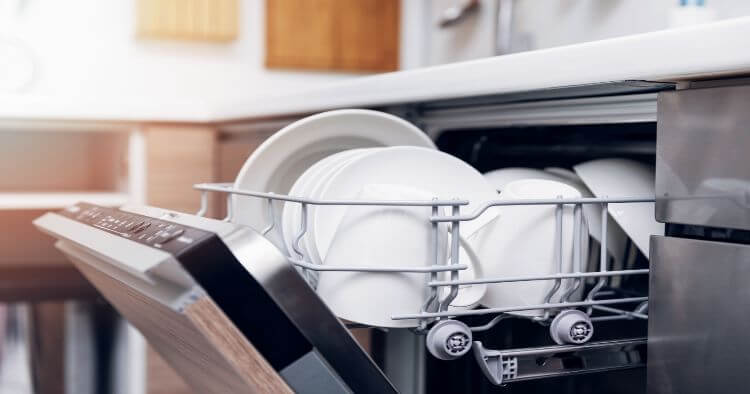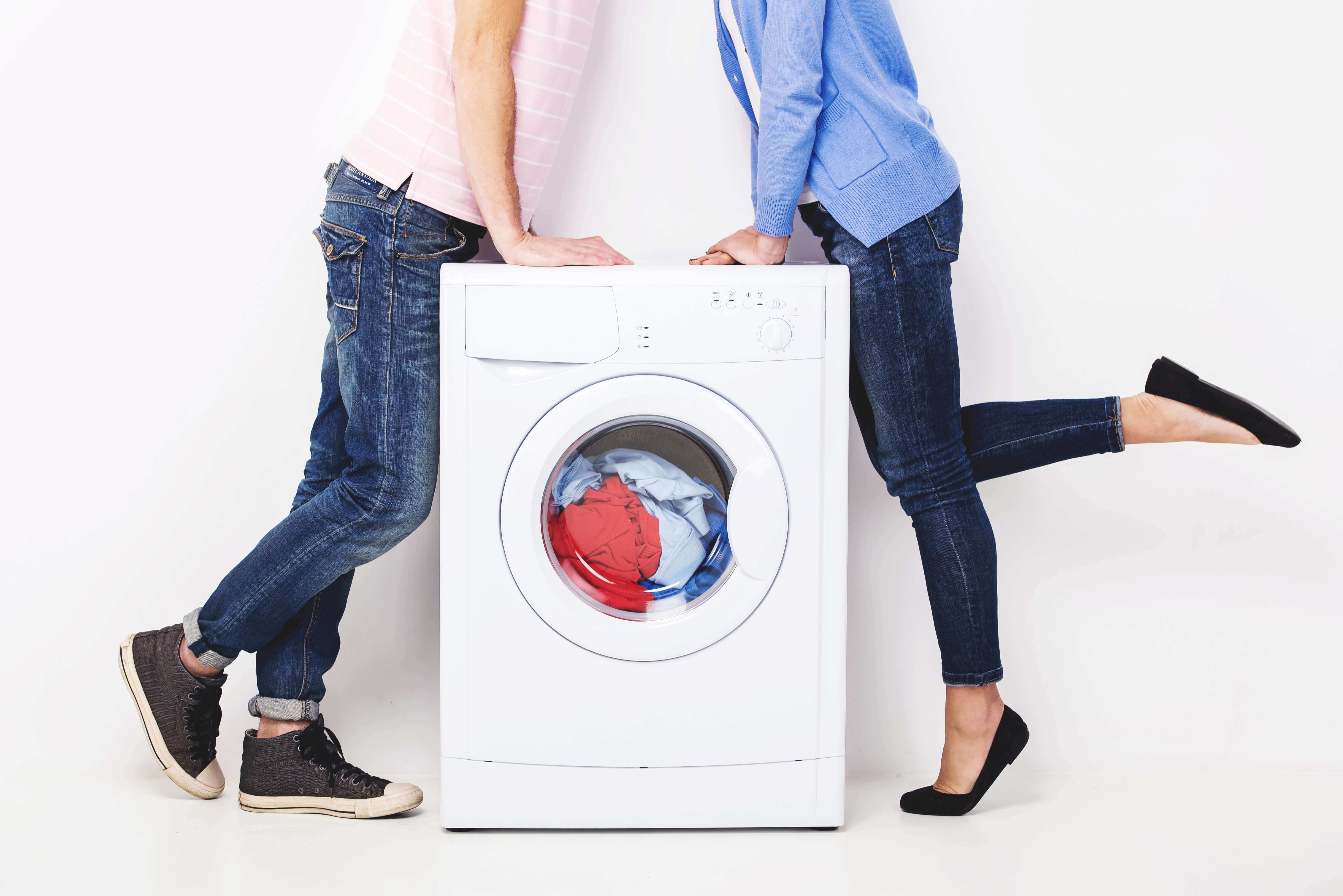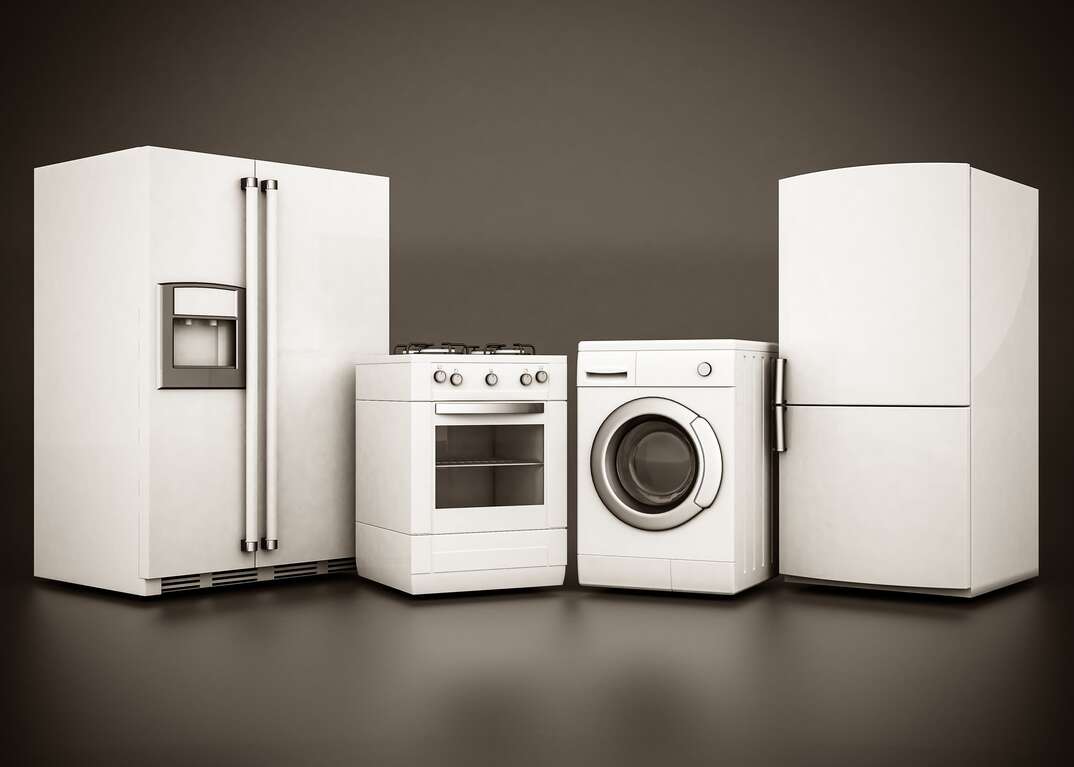You won't believe how much water dishwashers use

I have a rule. If it is not marked “dishwasher safe”, then it’s a no go. (I refuse to spend my hard earned money on anything I have to hand wash.) Yep, that’s right. In my opinion, life's too short to spend hours washing dishes. I know that some think dishwashers aren't as necessary as other kitchen appliances -- as those on Team Hand Washing think it’s a better option. But not me. I love the convenience of letting my built-in dishwasher do the dirty work for me.
In my effort to conserve water at home, I started to wonder about my beloved dishwasher. How much water and energy use went into each load, and if there was any way I could cut down on those numbers? Here's what I found out:
So, tell me: How much water does a dishwasher use?
Conventional dishwashers use about 10 gallons of water per load, according to CNET. However, standards established in 2013 require dishwashers to cap their water usage at 5 gallons per load. Energy saving models can even cut it down to 3 gallons, saving nearly 5,000 gallons of water each year, as calculated by the Department of Energy.
But wait: How do dishwashers compare to the kitchen sink?
Good news: The dishwashing vs. hand-washing debate tilts in favor of the oh-so-convenient appliance. (Phew, TG!) If you cleaned a full dishwasher's worth of dishes in your sink, it could use up to 27 gallons of water, as noted by CNET.
Learn More About Home Warranty Plans Near You
Models certified according to the joint DOE and Environmental Protection Agency Energy Star standards actually use less water than hand-washing your dishes. In fact, doing the dirty work yourself costs an average of $413 more in water and energy use than using a certified dishwasher, according to Energy Star. Plus, dishwashers can handle higher temperatures than your hands, which means there will be far more sanitary action.
How to cut down on dishwasher water use
As you might expect, the best way to save water without changing your dishwashing habits is to install an Energy Star-qualified model. However, there are other tricks to boost the efficiency of both conventional and energy saving dishwashers.
Try these water and energy saving tips:
-
Only run your dishwasher when it's completely full:
Make sure you load it properly so you don't waste water on inefficient loads.
-
Skip the pre-rinse:
Scrape away the large chunks of food, but modern dishwashers can handle the rest. You'll save 55,000 gallons of water over the life of the appliance by skipping the rinse, according to Lowe's.
-
Maintain your appliance:
It may seem counterintuitive, but you do need to clean your dishwasher about once a month.
-
Know the easy fixes:
Here's how to tackle common dishwasher problems so you aren't stuck washing by hand - and wasting water while you're at it.
While these efforts will help improve your dishwasher's efficiency, there's one more thing you can do to protect your dishwasher: Be prepared in advance for unexpected breakdowns and repairs with an appliance home warranty.
See how plans from TotalHome Warranty by HomeServe can help with the costs of covered appliance and home system repairs.


